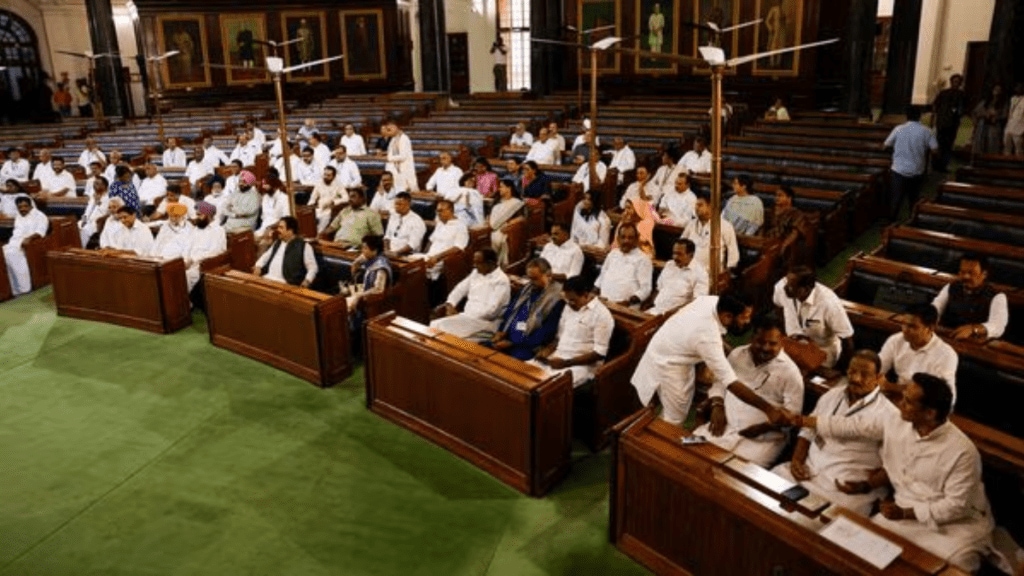The 18th Lok Sabha is set to hold its inaugural session from June 24 to July 3, marking the beginning of a new parliamentary term. One of the session’s key tasks will be the election of the new Speaker of the House. Given the recent strong performance of the NDA coalition in the Lok Sabha elections, there is considerable speculation about who will assume this crucial role. Until the new Speaker is elected, a pro-tem Speaker will be appointed to manage the initial proceedings.
According to reports, Prime Minister Narendra Modi is expected to move the motion for the election of the Speaker on June 26. In the meantime, Congress leader Kodikunnil Suresh, being the seniormost member of the Lok Sabha, is anticipated to serve as the pro-tem Speaker.
Understanding the role of the pro-tem speaker
The Speaker of the Lok Sabha plays a vital role in overseeing the day-to-day proceedings of the House. According to Article 94 of the Indian Constitution, the Speaker’s term extends until immediately before the first meeting of the new Lok Sabha following dissolution.
In a new Lok Sabha, the Speaker is elected by a simple majority. Until the Speaker is elected, a pro-tem Speaker is appointed to fulfill essential duties temporarily. The term ‘pro-tem’ signifies that the position is temporary.
While the Constitution does not specifically mention the role of the pro-tem Speaker, the official “Handbook on the Working of Ministry of Parliamentary Affairs” provides guidelines for the appointment and duties of the Speaker pro-tem.
Selection of the pro-tem speaker
The handbook outlines that when the Speaker’s post is vacant before a new Lok Sabha, a member of the House is appointed by the President to serve as the Speaker pro-tem. This member’s primary duty is to administer oaths to the newly elected MPs.
Under Article 99 of the Constitution, every Member of the House must take an oath or affirmation before taking their seat. This is typically done before the President or a person appointed by the President.
Usually, three other senior members of the Lok Sabha are also appointed by the President to assist in this process. These members are often selected based on their length of service in the House, though exceptions can occur.
Once the new government is formed, a list of the seniormost Lok Sabha members is prepared by the Legislative I Section of the Government of India. This list is submitted to the Minister of Parliamentary Affairs or the Prime Minister, who then identifies a member to serve as the Speaker pro-tem and three other members for oath-taking duties.
Administration of Oaths for New MPs
After receiving the Prime Minister’s approval, the Minister of Parliamentary Affairs obtains the consent of the selected members, usually via telephone. A formal note is then submitted to the President, seeking approval for the appointments and the scheduling of the swearing-in ceremony.
Upon the President’s approval, the Ministry informs the appointed members of their roles. The President administers the oath to the Speaker pro-tem at Rashtrapati Bhawan. Following this, the Speaker pro-tem administers the oath to the other appointed members and the newly elected MPs in the Lok Sabha.
As the 18th Lok Sabha prepares for its first session from June 24 to July 3, these procedural steps are crucial for ensuring a smooth transition and the effective functioning of the House in the coming term.
